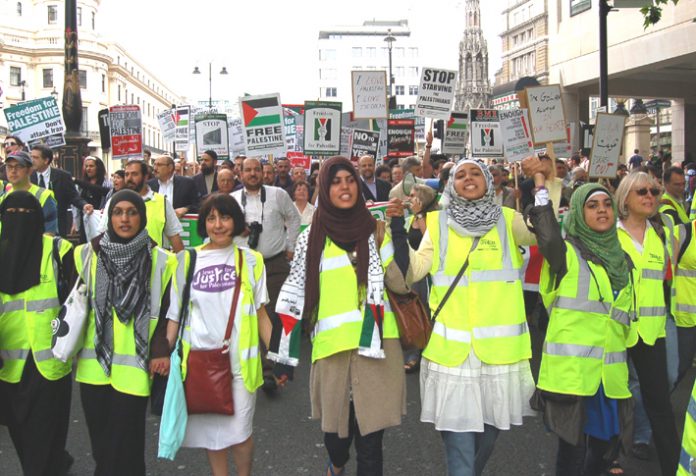
HAMAS yesterday released dozens of Fatah security commanders and Fatah officials detained during the past week in Gaza, and offered an amnesty to other Fatah security personnel.
Hamas also called for the immediate release of captured BBC journalist Alan Johnston, saying ‘this situation can no longer be allowed to continue’.
Egypt recalled all its diplomatic and security personnel from Gaza.
The moves came after Hamas fighters took full control of the Gaza Strip.
Hamas prime minister Ismail Haniya on Thursday refused to recognise the dissolution of the Palestinian National Unity government by President Mahmud Abbas and the state of emergency declared by Abbas.
Haniya said he will continue to carry on as prime minister to serve the Palestinian people.
Abbas yesterday declared a new Government of National Salvation and appointed a new prime minister, ‘independent’ Salam Fayyad.
Arab foreign ministers were holding emergency talks in Egypt while foreign ministers from the international Middle East Quartet (US, UN, EU and Russia) were discussing the crisis by phone.
UN chief Ban Ki-moon had held preliminary talks on the idea of sending an international force to Gaza, but Hamas rejected the move, saying it would treat foreign troops as occupation forces.
Sami Abu Zuhri, a Hamas leader, stated in a press release: ‘The repeated statements about deployment of international forces in the Gaza Strip, the latest of which were (EU foreign relations coordinator) Javier Solana’s statements, are unacceptable.
‘And any foreign forces regardless of their nationality being admitted into the Strip will be regarded as occupation forces.’
Earlier the estimated 12,000 political and resistance prisoners languishing in Israeli detention centres had issued an impassioned appeal to both Fatah and Hamas to stop factional fighting and ‘return to the voice of reason and wisdom’.
The prisoners’ statement said: ‘It is crystal clear that what has been happening in Gaza doesn’t serve the supreme interests of the Palestinian people. Therefore, we demand that the infighting be stopped immediately.’
The petition, issued from the Negev Ketziot detention camp was endorsed by representatives of various factions, including Fatah and Hamas. It didn’t blame any particular faction for the infighting.
The prisoners also called on Arab states, such as Egypt and Saudi Arabia, to isolate ‘suspicious third parties that continually seek to stoke the fire of civil war among Palestinians’.
The US condemned the Hamas control of Gaza and Israeli Prime Minister Ehud Olmert said he will be heading to Washington on Sunday for talks with US President George W Bush on the crisis.
US Secretary of State Condoleezza Rice called Abbas yesterday to voice Washington’s ‘full support’ while Russia called on the Palestinians to end a ‘fratricidal conflict in which there cannot be a winner’.
In the UK, both Downing Street and the foreign Office were unable to say whether they supported Abbas’ newly appointed government and prime minister.
The Prime Minister’s Spokesman told a news briefing that the Foreign Secretary had been engaged in the Middle East crisis and had spoken to President Abbas within the last 24 hours.
The spokesman added that the Prime Minister ‘has been kept fully engaged and his views were represented by those of the Foreign Secretary’.
Commenting on Thursday night Foreign Secretary Beckett said: ‘Today’s announcement that the National Unity Government has come to an end is of course a matter for regret. The Mecca Agreement and subsequent formation of the NUG seemed to be positive steps forward. But once again, extremists carrying guns have prevented progress against the wishes of the majority who seek a peaceful two-state solution.’
She added: ‘It is imperative that all sides agree to speak to each other. Dialogue is the only way to achieve a long-lasting and sustainable peace.’